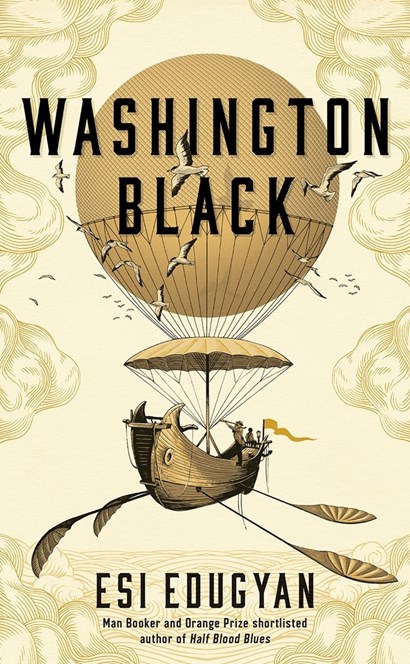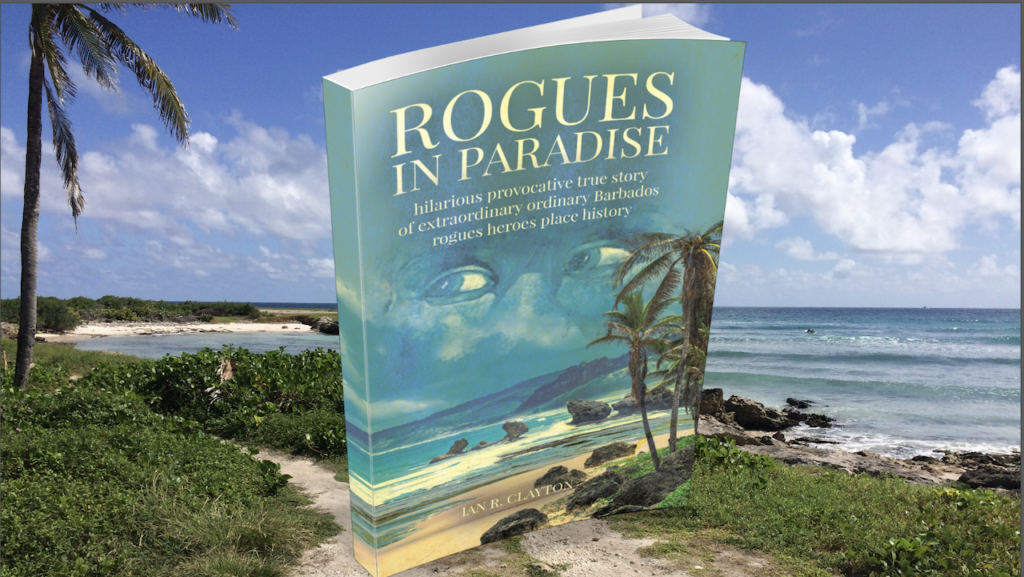The Story of Washington Black
Esi Edugyan’s novel, Washington Black (published in September 2018), is a neo-slave narrative that follows George Washington “Wash” Black, an 11-year-old field slave on a Barbados sugar plantation. His life pivots when the eccentric scientist Christopher “Titch” Wilde chooses him as a manservant, nurturing his artistic and scientific talents. After becoming implicated in a tragedy, they flee in Titch’s hot-air balloon (“Cloud Cutter”), launching a sprawling odyssey across Virginia, the Arctic, Nova Scotia, London, Amsterdam, and Morocco. Wikipedia+12The New Yorker+12Karla J. Strand, DPhil, MLIS+12Amazon+15Wikipedia+15The
See the updated PODCAST – a deep dive into History and Fantasy

The novel won the 2018 Scotiabank Giller Prize and earned nominations for the Booker Prize and other literary awards Wikipedia+1. Set between 1830 and 1836, it juxtaposes the brutality of the plantation system with Wash’s thirst for knowledge, freedom, and identity The Guardian+10LitCharts+10The New Yorker+10.
The Fiction and the Truth
In Washington Black, the story is propelled by invention — airships, Arctic voyages, and daring escapes. But the character of Wash himself is far more than a product of fantasy. Though fictional, he reflects the author’s careful research and sharp understanding of what it meant to live under slavery and to grapple with freedom in the colonial era. Gyasi’s insights into bondage, survival, and identity are precise and unflinching, grounding her narrative in truths that history too often hides.
At the same time, Barbados produced its own rogues, rebels, and visionaries who challenged authority, carved out freedom, and built a culture that still thrives today. This is the world captured in Rogues in Paradise, which peels back the layers of paradise to reveal the people — ordinary and extraordinary — who shaped its story.
Barbados: A Historical Canvas
Edugyan’s vivid portrayal of Barbados reflects deeper historical truths:
- Slave Code of 1661: Barbados enacted one of the earliest and most comprehensive slave laws. The code classified enslaved Africans as chattel, stripping them of fundamental human rights and allowing masters extreme physical control Wikipedia+15The National Book Review+15blogs.memphis.edu+15Wikipedia. This legal framework laid the groundwork for the brutal conditions Wash experiences.
- Impact of Slavery: The novel captures the terrifying reality of plantation life—including graphic violence, oppressive surveillance, suicides, and dehumanisation—reflecting the systemic cruelty of Barbados’ sugar economy Amazon+15The National Book Review+15thinkaboutreading.wordpress.com+15The Guardian+2LitCharts+2.
- Emerging Modernity: The arrival of Titch, a British scientist and abolitionist, symbolises a clash between oppressive tradition and emerging Enlightenment ideals. His mentorship opens Wash’s eyes to science, art, and self-worth LitCharts+10The New Yorker+10Decider+10.
Fictions Facts
Edugyan’s vivid portrayal of Barbados reflects deeper historical truths:
- Slave Code of 1661: Barbados enacted one of the earliest and most comprehensive slave laws. The code classified enslaved Africans as chattel, stripping them of fundamental human rights and allowing masters extreme physical control Wikipedia+15The National Book Review+15blogs.memphis.edu+15Wikipedia. This legal framework laid the groundwork for the brutal conditions Wash experiences.
- Impact of Slavery: The novel captures the terrifying reality of plantation life—including graphic violence, oppressive surveillance, suicides, and dehumanisation—reflecting the systemic cruelty of Barbados’ sugar economy Amazon+15The National Book Review+15thinkaboutreading.wordpress.com+15The Guardian+2LitCharts+2.
- Emerging Modernity: The arrival of Titch, a British scientist and abolitionist, symbolises a clash between oppressive tradition and emerging Enlightenment ideals. His mentorship opens Wash’s eyes to science, art, and self-worth LitCharts+10The New Yorker+10Decider+10.
Video Trailer- Wash to Rogues
Why It Matters for Barbados
- Cultural Reflection: For visitors and locals, this novel offers a gripping lens into early 19th-century Barbadian life—one that neither romanticizes nor flinches from cruelty.
- Tourism and Education: Embedding this narrative within your Barbados tourism encyclopedia enriches understanding of the island’s past, connecting literary imagination with actual colonial heritage.
- Encouraging Dialogue: The story speaks to contemporary issues—identity, reparations, and intergenerational trauma—creating openings for meaningful discussion alongside historical tourism time.com.
Rogues History
This story is part of the Rogues in Paradise journey — a cultural chronicle of Barbados told through the voices of rogues, rebels, and everyday people. Explore more: http://RoguesinParadise.com
- From Washington Black to Rogues in Paradise

History books rarely tell the whole truth. That’s where rogues step in. Discover the real Barbados — bold, rebellious, and unforgettable — in Rogues in Paradise.
👉 Discover Rogues in Paradise
Find your ideal Barbados accommodation...






